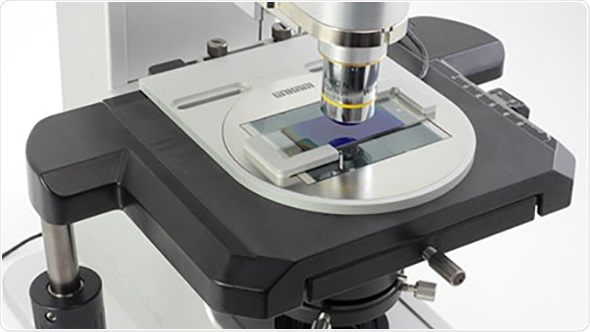Market leaders in temperature controlled microscopy, Linkam Scientific Instruments, are working with Cambridge IVF to develop new instrumentation and protocols to improve the reliability of sperm testing.
IVF is becoming increasingly important as fertility and birth rates fall in developed countries. Ensuring patients get the right treatment is important both from an emotional and financial perspective. It relies on the accurate equipment to support the correct diagnosis. Surprisingly, in sensitive area of andrology - the study of human reproduction - the testing of sperm for properties such as size, number and motility is not consistently controlled. One parameter key to successful testing is temperature. It is vital to test sperm at normal body temperature, i.e. 37 degrees Celsius. If the temperature is too low, sperm motility is reduced; if the temperature is too high, the sperm may be irreparably damaged. Either way, the diagnosis may be incorrect leading to the wrong treatment being offered.

Testing is performed using a basic light microscope which is used to observe the sperm performance on a heated glass slide. Control of the temperature has been seen as arbitrary from lab to lab and hence there can be a wide variance in reported results.
Mr Stephen Harbottle is the Consultant Embryologist and Person Responsible at Cambridge IVF. With more than 20 years direct hands-on experience in embryology and diagnostic andrology, Stephen has observed the inconsistencies of testing and was very happy to be directly involved in advising Linkam Scientific Instruments on the development of suitable instrumentation to reliably test sperm. He observed the problem: “There is a real need for consistency of testing in andrology laboratories. At present, there is inconsistency with labs performing tests using non-validated or out of date procedures with limited regulation or control. Equipment is not standardised; it is not being calibrated and validated against reference systems or used in accordance with best practice recommendations in some test centres. Testing should be done to a validated standard operating procedure and labs performing tests should ensure they are registered to an appropriate external quality assurance scheme.”
For Linkam, with more than 30 years' experience developing and manufacturing temperature controlled microscopy stages, the challenge was one that required a system that could easily maintain a user-defined temperature between ambient and 60°C to +/-0.2°C, while allowing high resolution observation. The system would also require easy calibration, be of low entry price and have minimal running costs. Working with Mr Harbottle, Linkam's engineering team have come up with an innovative approach which incorporates a simple and visual temperature validation using a specially developed liquid crystal temperature sensitive slide to enable temperature calibration.
This fits well with Mr Harbottle's role at Cambridge IVF where he leads a team of highly skilled and deeply motivated embryologists who share a collective commitment and ethos; to clinically excel, challenge the status quo and give his clients confidence. He keeps abreast with new developments and is always on the look out to improve the facilities he offers to make Cambridge IVF a centre of excellence.
To learn more about Linkam and their approach to the development of temperature stages to address multiple applications challenges, please visit www.linkam.co.uk